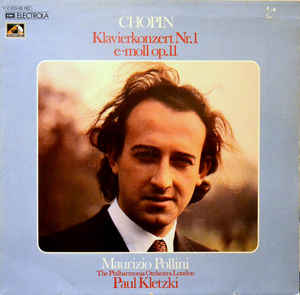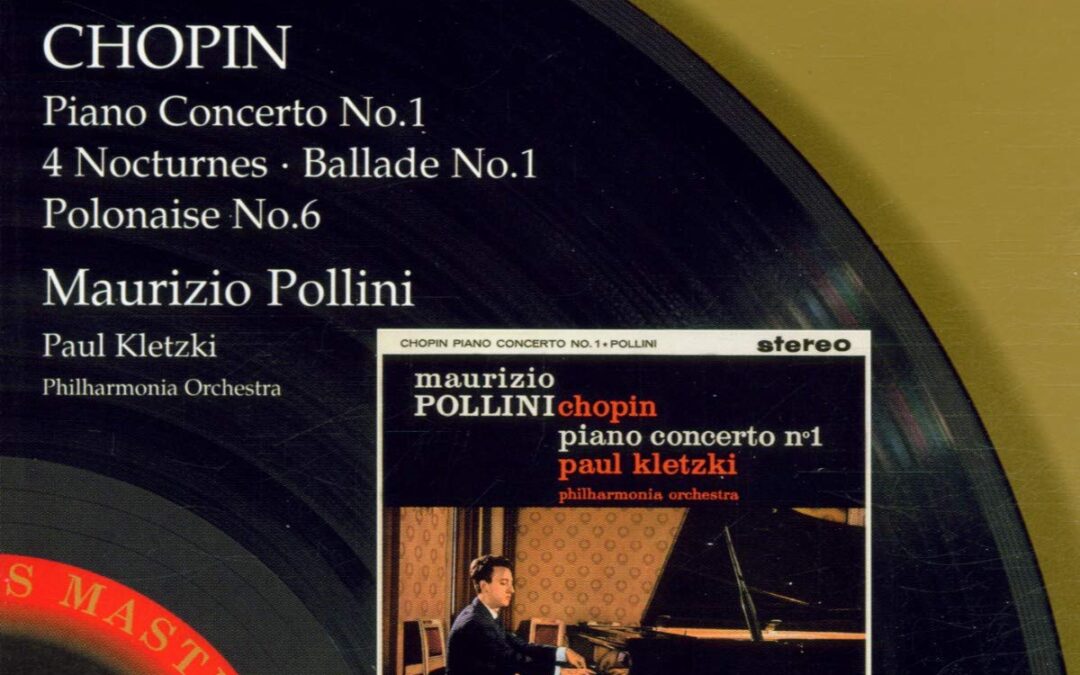Keen readers of this weblog may well have noted that October was conspicuously lacking in any Album Of The Month (“AOTM”) post. Indeed, the more anxious amongst you may well have begun to worry that an AOTM post for October would never materialise. Fear not, however, for I am happy to present what I believe to be the world’s first “October Album Of The Month But Neither Cedric Nor I Had The Time To Do One That Month So It’s Actually Published In November” post (“OAOTMBNCNIHTDOTMSIAPIN”). A catchy title I am sure you will agree.
It must be said my belated choice for this august blog category is a somewhat unusual one, but nevertheless I believe it to be deserving of the accolade. Released by EMI at the turn of the century as part of their “Great Recordings of the Century” series, my album of the month is strictly speaking a compilation of two earlier recordings by Maurizio Pollini. The first being a recording of Chopin’s piano concerto No. 1 in E minor from April 1960 and the second a recording of a recital of solo piano music by Chopin from 1968.

Pollini began his recording career as an EMI artist before heading over to Deutsche Gramophone. Although recorded very early in his career, these performances are particularly fine, indeed some have argued that a few of his later efforts at DG have been a little “cold and mannered” in comparison. The performances here are far from lacking in warmth and lyricism, characteristics that are particularly on display in the Concerto’s Romanze second movement and the nocturnes. At the same time, Pollini’s playing on this album displays a clarity of expression that belies his then youthful inexperience.
For the piano concerto Pollini is very ably accompanied by Paul Kletzki and the Philharmonia, albeit given the dominance of the piano in this work, we should be scarcely surprised that Pollini takes centre stage. Written while Chopin was still living in Poland, this is not a piece I know well, although, I must say, I did enjoy the Romanze movement very much.
The highlights of the album for me, however, are definitely Pollini’s rendition of Chopin’s D-flat major nocturne and the Ballade in G minor. Pollini handles the nocturne with its dreamlike excursions so deftly, while his playing in the Ballade brings rigour to a piece that at times feels hardly able to contain its (for the time) unparalleled ferocity. The album ends with the Polonaise in A-flat major, a fittingly dramatic and uplifting departure to a truly captivating album.

